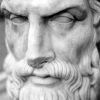Hi Ryan,
RyanCarey wrote:Pablo, I'm a hedonistic utilitarian and I think that human flourishing is as good as any other term for what I want to do.
Then we do not agree. I think the term 'flourishing', in its standard sense, includes properties that hedonistic utilitarians do not value (e.g., the property of being successful in accomplishing one's goals, even if accomplishment is not accompanied by pleasure), and it also excludes properties that hedonistic utilitarians do value (e.g., the pleasure of insects, if they are sentient). More generally, I think we should say what we mean (as Hedonic Treader correctly points out). So if LR embraces hedonistic utilitarianism, they should use the term 'pleasure' and its cognates to express their moral views.
RyanCarey wrote:The point of Leverage seems to be to stack as many multipliers [see 80k hours) in front of our positive impact as possible. So that one person can have the impact of many. People who come to Geoff thinking clearly about how to greatly improve the world will be met favourably.
I think the idea of "stack[ing] as many multipliers in front of our positive impact" is great, but only if combined with a correct account of what 'positive impact' consists of. Effectiveness is not valuable in itself; its value (including its sign value) will vary depending on that which we are trying to optimize. Optimizing for human welfare might have catastrophic results if more human welfare leads to even less animal welfare (cf. the poor meat-eater problem, or more speculative scenarios involving terraforming or directed panspermia).
RyanCarey wrote:As a vegetarian-vegan, I do not think that it is clear that being vegetarian is an important part of how to improve the world, in light of the strength of arguments as strong as Bostrom's on existential risk, astronomical waste and such.
I agree that being a vegetarian is not an important part of how to improve the world (though
promoting vegetarianism might have incalculable value). However, whether someone is a vegetarian has considerable
epistemic value, in the sense it very reliably tells you how much this person cares about the welfare of non-human animals. You could argue that an enlightened altruist, after realizing that being a vegetarian doesn't make much of a difference, will have no qualms about following an omnivorous diet, and that for such a person my approach will yield the wrong conclusions: this person, if anything, takes altruism
more seriously than vegetarian altruists. However, I think the number of such enlightened altruists is extremely small, even relative to the general population of altruists (which is itself tiny). The vast majority of those who claim that eating meat is justified on consequentialist grounds have never themselves been vegetarian in the past. This makes me suspect that these justifications are just rationalizations for doing what they would have done anyway. If these people had gone through a period of vegetarianism and
then had switched to an omnivorous diet, I'd take their arguments much more seriously. (A rare example of someone who fits this description is Jesper Östman, who was a vegetarian for some time and then became a meat-eater after being persuaded that he could reduce existential risk more effectively by relaxing his dietary standards. I don't doubt his sincerity.)






